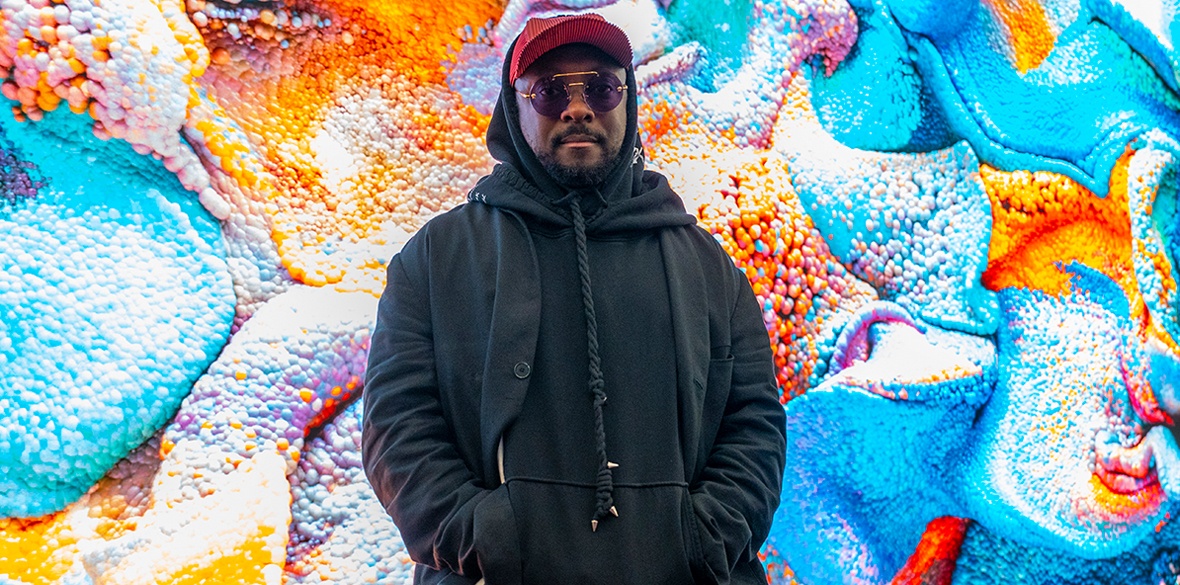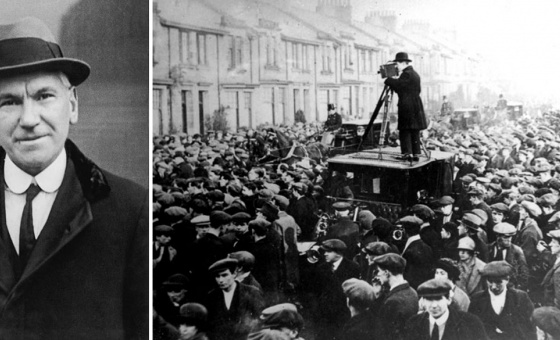This is the last article you can read this month
You can read more article this month
You can read more articles this month
Sorry your limit is up for this month
Reset on:
Please help support the Morning Star by subscribing here
IT IS hard now to think back beyond Tuesday night.
But I do remember that when I heard “Yes She Can” on Monday afternoon, released that day by the ardent Democrat, will.i.am, I felt that the song was a surer sign than any poll or pundit’s prediction that Kamala Harris’s White House bid was doomed.
His last-ditch political paean sounded much more like a lament, even though it faithfully echoed the hymn he offered up to Barack Obama during the 2008 presidential campaign.
At the beginning of January of that year Obama lost to Hilary Clinton in the New Hampshire primary. But the junior senator from Illinois used the defeat to go on the offensive, unleashing his considerable oratorical to intone his cherished theme of Hope. He practically sang, preacher-like, the refrain, “Yes We Can.”
A few days later, will.i.am announced that he was assembling a political album, Change is Now: Renewing America’s Promise — its title sounding less like a pop chart-topper than like a Democratic Leadership Conference PowerPoint presentation.
Will.i.am released the first track of the album as a single just a few weeks later at the beginning of February. He took the words of Obama’s New Hampshire concession speech and set them against a cyclic pattern of four chords, three major and one minor connected by a couple of unthreateningly churchy harmonic moves.
Given that all the lyrics were his, Obama shared a song-writing credit, the first and only pre-president to add that honour to his CV.
The four-and-half minute video for “Yes We Can” was shot in high-minded, hifalutin black-and-white and featured spoken and singsong cameos from a parade of celebrities, beginning with the actor Scarlett Johansson, the retired basketball star Kareem Abdul-Jabbar, the rapper Common, and the singer-pianist John Legend. The closing benediction was provided by Herbie Hancock at the piano.
Blended in was footage and audio of Obama making his speech so that the refrain and other eloquent phrases were heard as he uttered them with will.i.am shadowing his words melodically. The video began by pairing, in split screen, will.i.am singing and Obama speaking with a resonance that was nearly song, not just because of the strumming guitar accompaniment, but thanks to his tuneful metrical pacing.
“It was a creed, written into the founding documents, that declared the destiny, of a nation – yes we can!”
The big names started joining in and, in contrast to the studied pictorial clarity of the celebs, the footage of the candidate had a historic, archival quality that courted associations with JFK: handsome, Periclean, resolute.
Change is Now of 2008 anticipated its own 2024 return and nullification.
On the eve of this week’s election, the familiar four chords were back. The only decisive difference was in the pronoun. Yes she can. The burden was now to be shouldered by a woman: she would carry her supporters to victory or fail — on her own. “We” had run for cover.
Instead of the antiqued, uplifting photography of the original, will.i.am appeared in the new video in lugubrious colour. Austerity had set in: text cuts had chopped the product down to less than half its former stature — a paltry 1:43.
Gone too was visionary rhetoric ushering in a glorious future. The poised optimism of 2008 had given way to timid worry and a lethargy that inoculated the resuscitated song from any possibility of going viral.
“Yes She Can,” begins in tight close-up on the rapper staring bleakly at the camera then looking away as if scanning the vicinity for attackers, Proud Boys storming the studio. Instead of fearless optimism, the gendered lyric brings to mind a child clinging to the maternal skirt: “Momma, what’s wrong with America? / Why can’t we get along in America?”
The chiaroscuro solemnity of the original has been crowded out by colour and smoke: shots of the attack on the Capitol are seen as will.i.am mournfully sings of the “People entertained by the predator”; he defends abortion rights as we see protests in front of the Supreme Court; he extols freedom over drone shots of the Statue of Liberty and across the harbor to New York City, which loathes its native son, Donald Trump.
Unlike its predecessor, “Yes She Can” got no reinforcement from the Great and the Good. Instead of the bolster of big names and big money, it offers quick cuts of everyday American faces of all different hues. Later they lip-sync dutifully to the refrain. It was telling that their voices were not heard.
Even more ominously, the “She” of the title was nowhere to be seen or heard in the video.
The musical monument to Hope had been dismantled, remnants of the conceit now heard only in the conditional mode: “We could be better than we ever been.” The solidarity of the original, however manufactured, evaporates in a haze of condescending encouragement.
The Democratic dirge sounded first on Monday, even before the funeral. Mr. Am’s requiem rap will find no peace in eternity, but will lurch forever through the purgatory of the internet, ghostly and grieving.
David Yearsley is a long-time contributor to CounterPunch and the Anderson Valley Advertiser. His latest recording is Handel’s Organ Banquet. He can be reached at dgyearsley@gmail.com











